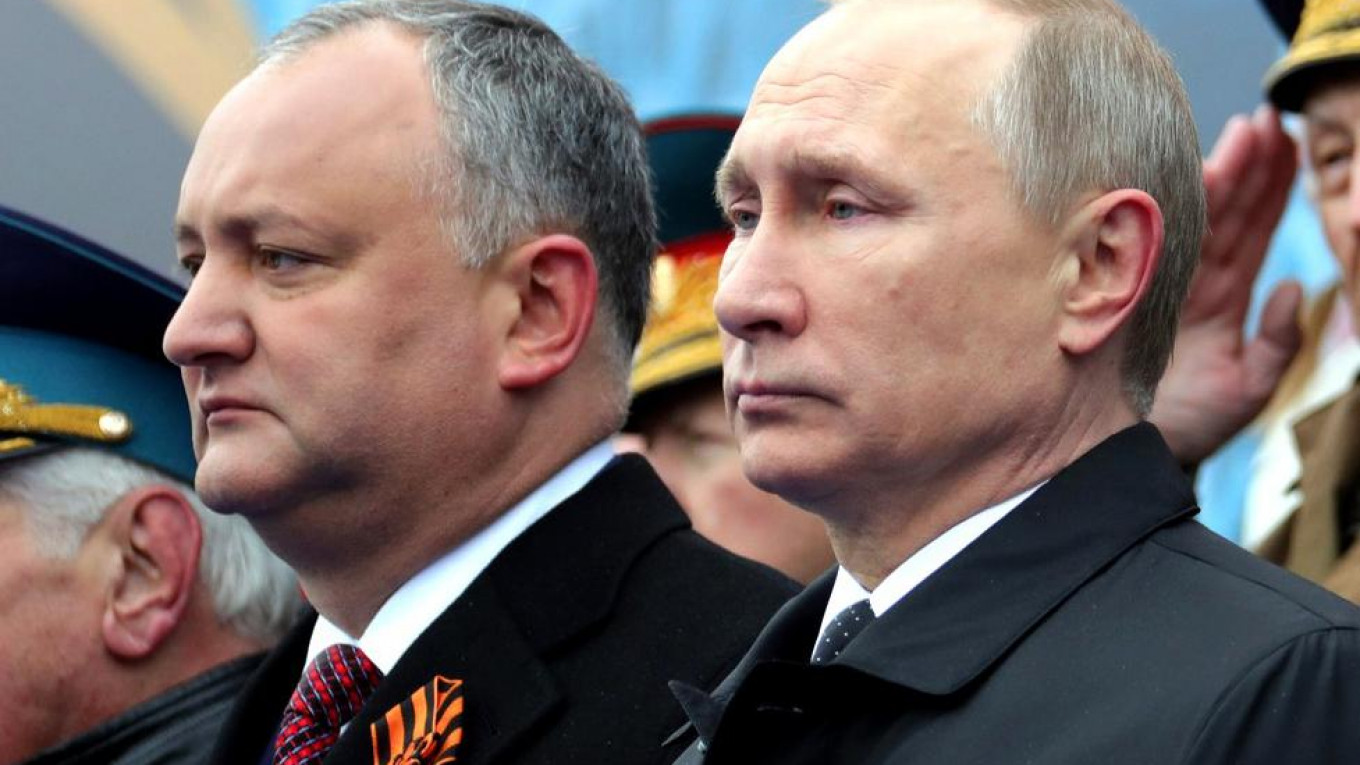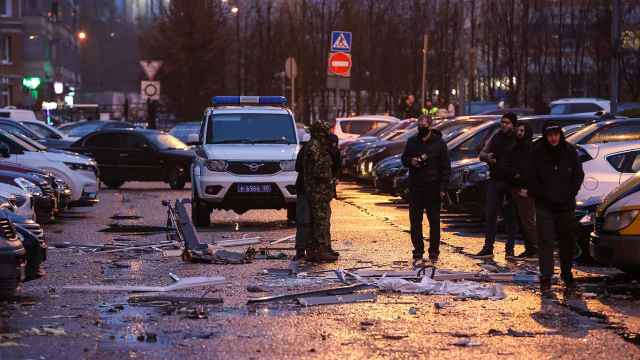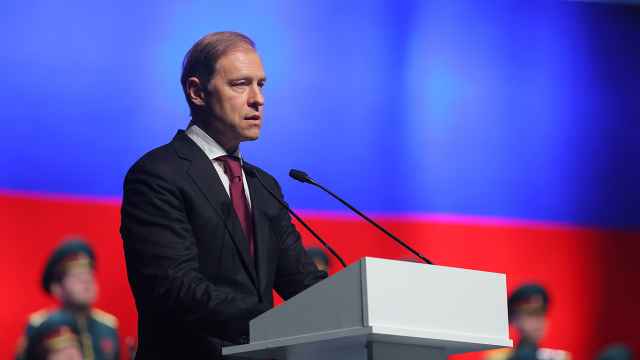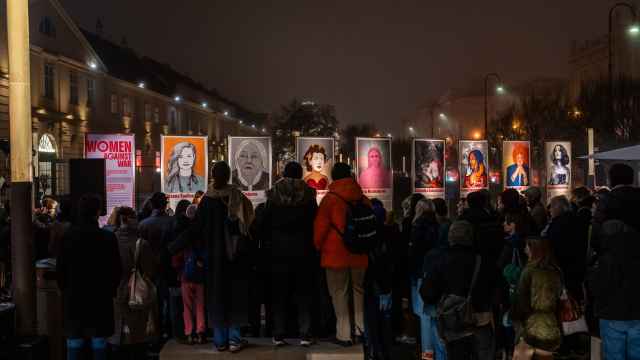Dozens of foreign leaders went to Moscow in 2005 to participate in the Victory Day Parade, celebrating the 60th anniversary of Nazi Germany’s capitulation to the USSR. U.S. President George W. Bush, Chinese President Hu Jintao, Danish Prime Minister Anders Fogh Rasmussen, Indian Prime Minister Manmohan Singh, German Chancellor Gerhard Schroeder, Ukrainian President Viktor Yushchenko, and many more made the trip.
A lot has happened in the past 12 years, however, and Russia’s wars in Georgia, Ukraine, and Syria have helped isolate Moscow in the international community.
Just one foreign head of state attended Moscow’s Victory Day Parade this year: Moldovan President Igor Dodon, marking the first May 9 visit by a Moldovan president to Russia in 15 years.
Dodon was elected last November on a pro-Russian platform, calling for improved relations with Moscow. This February, at a meeting with European Council President Donald Tusk, Dodon said better relations with Russia are “absolutely crucial” for Moldova.
In 2015, when Russia celebrated the 70th anniversary of the end of the war, Moscow reportedly invited 68 heads of state. Two dozen foreign dignitaries attended, including figures like Zimbabwe ruler Robert Mugabe, Cuban President Raul Castro, and the presidents of the contested independent republics of Abkhazia and South Ossetia.
Western leaders largely refused to attend, including U.S. President Barack Obama, Japanese Prime Minister Shinzo Abe, German Chancellor Angela Merkel, and dozens more.
A Message from The Moscow Times:
Dear readers,
We are facing unprecedented challenges. Russia's Prosecutor General's Office has designated The Moscow Times as an "undesirable" organization, criminalizing our work and putting our staff at risk of prosecution. This follows our earlier unjust labeling as a "foreign agent."
These actions are direct attempts to silence independent journalism in Russia. The authorities claim our work "discredits the decisions of the Russian leadership." We see things differently: we strive to provide accurate, unbiased reporting on Russia.
We, the journalists of The Moscow Times, refuse to be silenced. But to continue our work, we need your help.
Your support, no matter how small, makes a world of difference. If you can, please support us monthly starting from just $2. It's quick to set up, and every contribution makes a significant impact.
By supporting The Moscow Times, you're defending open, independent journalism in the face of repression. Thank you for standing with us.
Remind me later.






